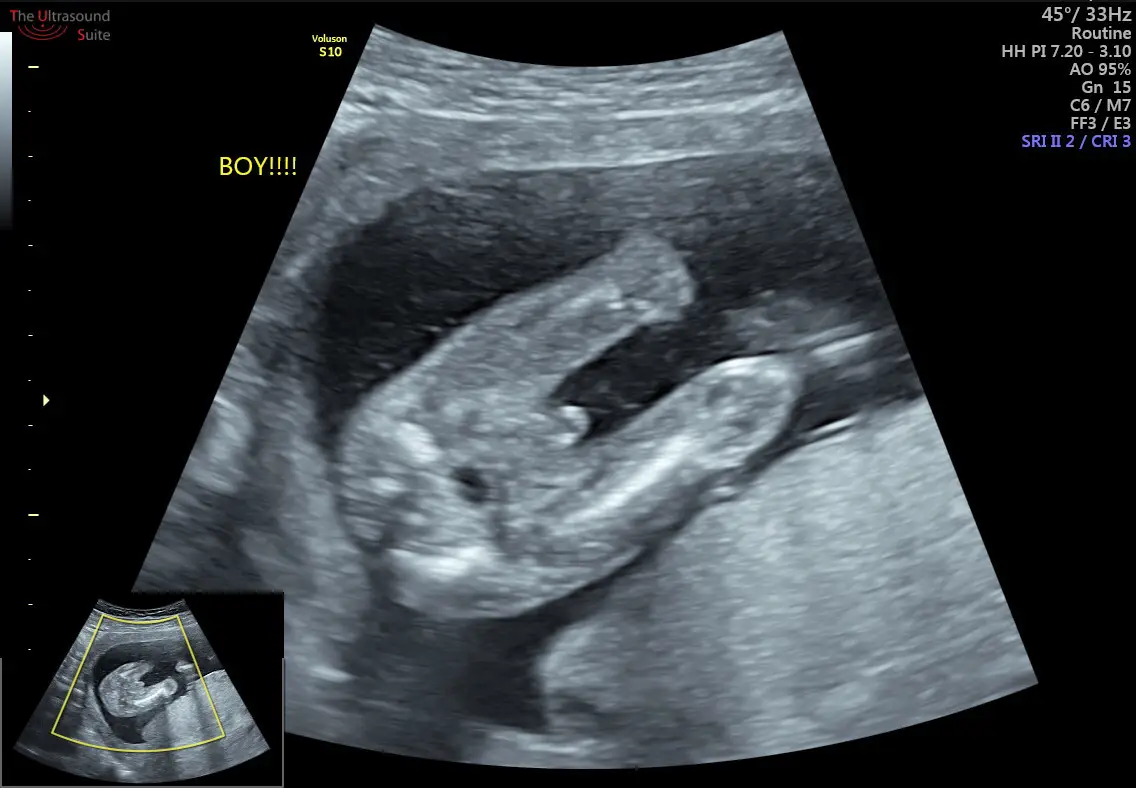How Can I Find Out The Gender of my Baby?
One of our most popular scans at The Ultrasound Suite is our Gender Scan. Some parents are curious to find out if they are having a baby boy or a baby girl. This is an exciting time for parents as they can start thinking of names, buying new toys and decorating the baby’s room.
When wanting to find out the gender of your baby it is important to know when and where you can do just this. There are certain times during the pregnancy that you can discover this and it requires a certain type of scan to reveal the sex of the baby.
Which scans can tell the gender of my baby?
There are two main scans that can be used to determine the sex of your baby. Both scans are non-invasive and can tell you different things about your baby, so it’s important to know the difference between the two.
Ultrasound Gender Scan (16wks-40wks)
This is probably the most common way that parents discover the sex of their baby. As far as we know, we have a 100% accuracy gender prediction rate over 16 weeks. We have therefore decided that this is a good timeline if you want to announce your baby’s gender to your friends and family or splash out on the blue or pink! The sex of the fetus becomes clearer to the sonographer as the baby gets bigger. If you have the patience to wait till 20 weeks, it is very clear at this stage.

The purpose of this scan is to:
- Determine the sex of the fetus
- Confirm intrauterine pregnancy
- Determine fetal viability
- Assess the fetus’ growth by performing measurements on the head, abdomen and leg
- Establish a current estimated fetal weight
- Identify and measure fetal heart rate
Non-invasive prenatal testing (Nipt)
Nipt is a form of non invasive testing that can determine the risk of a fetus being born with genetic abnormalities. The test will screen for a number of different potential abnormalities with up to 99% accuracy. Nipt tests for down syndrome, Edward’s syndrome, Patau syndrome and also X & Y chromosome conditions.
NIPT has a high accuracy for assessing fetal Trisomy risk. More than 99% of fetuses with Trisomy 21 can be detected, 98% detection rate of fetuses with trisomy 18, 80% detection rate of fetuses with trisomy 13, and a 96% detection rate of fetuses with Turner Syndrome in singleton pregnancies.
Nipt provides the most accurate testing for the baby’s gender with a 99% accuracy rate. Accuracy for detecting other sex chromosome anomalies varies by condition. More importantly, the number of women that are required to have invasive testing (amniocentesis or CVS) after undergoing NIPT is less than 1%.
There are two types of Nipt testing that we carry out:
Prenatal Safe
The testing includes taking blood from the mother and also carrying out a scan too and this can be done from 10 weeks onwards. This screens for Downs syndrome, Edwards syndrome, Patau syndrome, fetal sex (optional), Turner syndrome, Klinefelter syndrome, Triple X syndrome, XYY syndrome, and XXYY syndrome. This form of testing can also be performed on twins, IVF donor egg and IVF donor egg twins.
Panorama
The Panorama testing can be conducted from 9 weeks onwards. It screens for Downs syndrome, Edwards syndrome, Patau syndrome, fetal sex (optional), Turner syndrome, Klinefelter syndrome, Triple X syndrome, XYY syndrome, XXYY syndrome, Triploidy, 22q11.2 deletion (DiGeorge), Prader-Willi, Cri-du-chat, and 1p36 deletion. It’s important to note that this cannot be performed on twins, IVF donor egg and IVF donor egg twins.
Conclusion
Nipt is the earliest option available to finding out the gender of your baby as this can be done from 9 weeks on wards. If patients decide against Nipt then a gender determination scan can be performed from 16 weeks onward. Sometimes the fetal sex can be seen as early as 11 weeks depending on the individual but it’s advised to wait until at least 16 weeks as any scan under 16 weeks can be inaccurate or not even possible.
If you’d like to discover the sex of your baby, The Ultrasound Suite provide both ultrasound gender determination scans and non-invasive prenatal testing. All of our scans are completed with a full well-being scan to ensure your baby’s well being and that your pregnancy is healthy.
